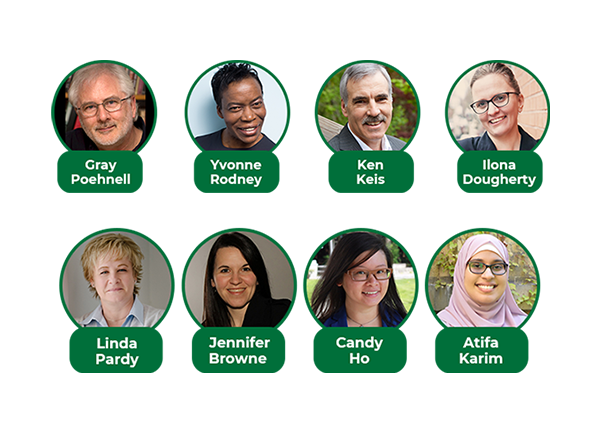
Mega speakers announced for Cannexus20 National Conference!
August 14, 2019
Spark! talks return with inspiring presenters at Cannexus20
September 4, 2019CERIC will fund a project for Mount Royal University to update its popular guide to computing careers, which will now add two emerging areas: data science and cybersecurity. The second edition of Computing Disciplines: A Quick Guide for Prospective Students and Career Advisors will also expand on training opportunities such as college programs and coding camps, as well as incorporate profiles of diverse alumni. The aim of the guide remains to support career counselling for students interested in technology.
Computing has undergone massive changes over the past 20 years, and the Association for Computing Machinery (ACM) is revising its curriculum recommendations to help clarify emerging sub-disciplines and prepare professionals who are entering the field. Research for the original project – undertaken by an international research team led by Calgary’s Mount Royal University – found that most undergraduate students did not understand the differences between the five computing disciplines (computer engineering, information technology, information systems, software engineering and computer science). It also became clear that career counsellors and other career advisors needed more information to support their clients.
This research informed the development of a graphically oriented 32-page guide from Mount Royal authors Randy Connolly, Janet Miller and Faith-Michael Uzoka. The first edition of Computing Disciplines launched at the Cannexus National Career Development Conference in 2018. The guide has since been distributed at provincial and other national conferences and the research has been presented and published to international audiences. Based on demand, a French adaptation of the guide was also released. More than 4,000 copies of the guide are now in circulation and they have met with very positive feedback.
The guide is being used at both the secondary and post-secondary levels to inform students in their decision-making around computing-related education and career paths, so they can make choices that are aligned with their values, interests and skills. Computing Disciplines provides an overview of each of the sub-disciplines and related careers, core courses, key tasks and sample jobs. It is designed to support students, as well as the career practitioners, faculty and parents who advise them. In particular, the guide helps provide students with adequate discipline information prior to application for program admission or prior to when they are required to choose their major.
With the field continuing to evolve, the 2nd edition of Computing Disciplines: A Quick Guide for Prospective Students and Career Advisors will provide up-to-date information and do so in a way that is inclusive of culture, gender and regional diversity. The revised guide will include two new branches in computing curriculum announced by the ACM – data science and cybersecurity, making for seven sub-disciplines. It will also expand on non-degree educational pathways, including college programs, technical institutes, private certificate programs, coding camps and hackathons. Another new feature will be personal stories of alumni to illustrate their computing career paths and showcase Canadian role models.
The new guide is expected to be released at the Cannexus conference in January 2020, and once again will be made available for free download.
CERIC provides funding and other support to develop innovative career development resources. Individuals and organizations are encouraged to submit project proposals for career counselling-related research or learning projects.

